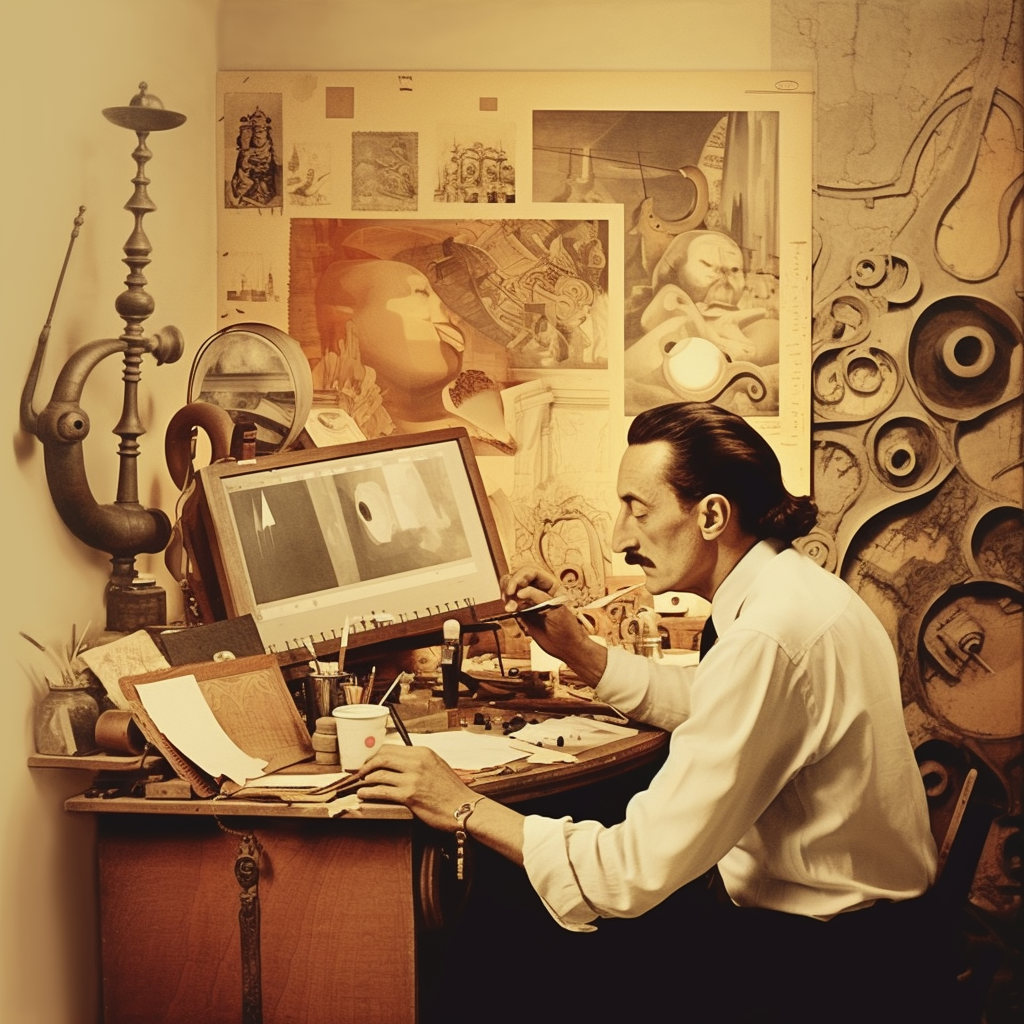Long ago, on the island of Crete, there lived a master craftsman and inventor named Daedalus. Daedalus was renowned throughout Greece for his remarkable creations, but he was also known for his cunning and wit. He served King Minos, who ruled over Crete, and the king was in need of Daedalus’s expertise for a peculiar task.
King Minos had imprisoned a ferocious creature known as the Minotaur in a labyrinth beneath his palace. This labyrinth was so intricate and bewildering that even those who entered it willingly could never find their way out. However, Daedalus was the one who designed and constructed the labyrinth, and he alone knew its secrets.
As time passed, Daedalus and his young son Icarus became captives of the labyrinth’s design, for King Minos feared that Daedalus might reveal the labyrinth’s secrets to others. They were confined to the palace, unable to leave the island.
Daedalus, unwilling to accept their imprisonment, began devising a daring plan to escape Crete. He knew that they could not simply leave by sea, for King Minos controlled all the ships on the island. Instead, Daedalus decided to create a means of flight.
Using his brilliant mind and his skills as a craftsman, Daedalus gathered feathers from birds that roamed the island and fashioned a pair of wings for himself and his son. He used wax to bind the feathers to a sturdy frame, forming wings that could be attached to their shoulders.
Before they set out on their audacious escape, Daedalus warned Icarus of the dangers they faced. He cautioned his son not to fly too close to the sun, for the intense heat could melt the wax and cause the wings to disintegrate. He also advised Icarus not to fly too low, for the sea’s moisture could make the wings heavy and difficult to manage.
The day of their escape finally arrived, and father and son stood atop a towering cliff on the island of Crete, wearing their makeshift wings. Daedalus launched himself into the sky, and Icarus followed closely behind, the thrill of flight filling their hearts.
As they soared over the sparkling Aegean Sea, Icarus felt an overwhelming sense of exhilaration. The world below them seemed to shrink, and the sun hung high in the sky, casting a radiant glow. The temptation to reach higher and closer to the sun was irresistible.
Icarus disregarded his father’s warnings and flew higher and higher, drawn toward the sun’s brilliance. He basked in the warm glow of the celestial orb, convinced that he could defy nature itself.
But as he climbed to the zenith of his flight, the wax on his wings began to melt from the sun’s intense heat. With a sudden shock, Icarus felt his wings disintegrate, and he started plummeting toward the sea.
Daedalus watched in horror as his beloved son fell from the sky. He cried out to Icarus, but it was too late. Icarus vanished beneath the waves, his wings reduced to mere feathers and splinters floating on the surface.
Daedalus was heartbroken, and he mourned the loss of his son. He continued his flight, making it safely to the shores of a distant island. There, he would create more marvels and inventions, but he carried with him the heavy burden of the price his son had paid for his reckless ambition.
The story of Icarus serves as a timeless reminder of the consequences of arrogance and hubris, a cautionary tale of a young man who dared to challenge the limits of the natural world, only to meet a tragic fate when he sought to touch the sun.


